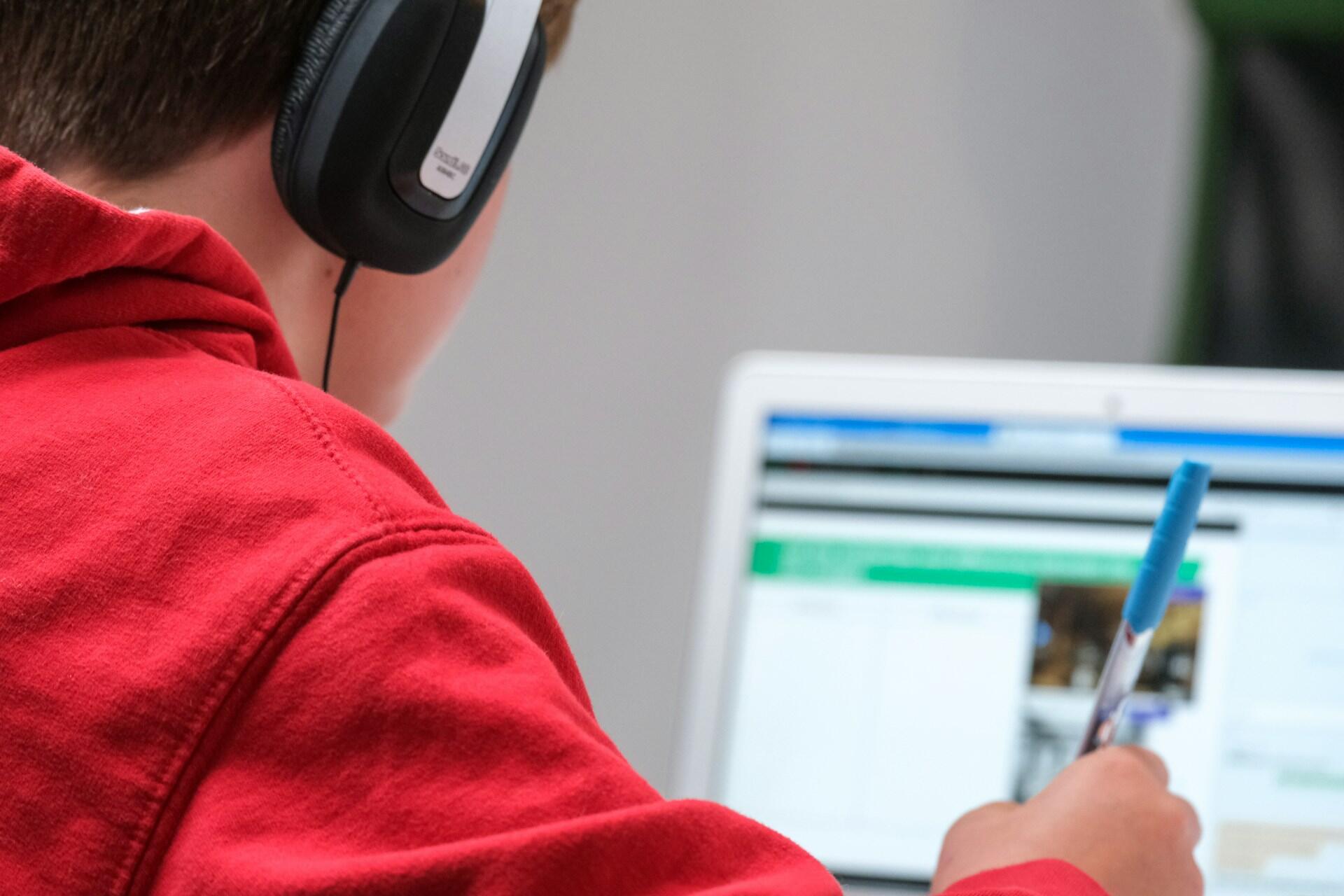Studying can often be stressful, and you'll regularly feel like you have little time. Whether you're in school, college, or university, your success can hinge on how you absorb information, stay focused, and remember what you study.
Luckily, it's not about cramming for hours. Effective study strategies are about learning more in less time and forming good study habits so that you walk into exams confident.
Here, we'll examine practical study and learning techniques and tools to help students work smarter, not harder. Let's get started!

Why Effective Study Methods Matter
More time doesn't automatically equate to better results, and many students struggle with this.

They spend time doing "busy work" like reading notes, highlighting textbooks, rewriting everything from their lessons, and a whole host of activities that make you look like you're doing a lot without actually learning anything.
Effective studying involves focusing on how your brain processes and retains information by engaging with the material meaningfully. This will help concepts stick and lead to long-term understanding rather than last-minute memorisation.
Smart studying will save time, reduce stress, and improve academic performance and results. Strategies like active recall, spaced repetition, and self-testing are all great ways to get the most out of the time you spend studying.
Build a Study Schedule That Works
Good planning is key to good study habits. A well-structured study schedule will help you stay on track, manage your time effectively, and avoid last-minute cramming (which is rarely effective).

The key to building a study schedule that works is breaking your bigger goals into manageable chunks and spreading your learning out over time.
Before you do anything, list all the subjects and topics you must review. From there, you can start allocating specific time slots for each based on the difficulty or priority. You should allocate more time for subjects that consistently take more effort.
You can use tools like online planners and apps like Notion or Google Calendar, or a whiteboard could help you visualise your week.
50%: Core subjects (English, Maths, Irish)
30%: Exam-heavy subjects (Biology, Business, History, etc.)
20%: Practical or elective subjects (Art, PE, Music, etc.)
While it's nice to be enthusiastic, be realistic about how much you can cover each day and ensure that your revision schedule accounts for short breaks.
Study Techniques That Actually Help You Learn
Effective study methods are the ones that engage your brain and encourage deeper information processing. Here are some of the ones that many students find effective:
- Active Recall: This involves retrieving information from memory without looking at your notes. Think of it as quizzing yourself. The more you practice, the better your memory becomes.
- Spaced Repetition: Rather than cramming the night before an exam, review material at increasing intervals (e.g., 1 day later, 3 days, 1 week). This improves long-term retention.
- The Feynman Technique: Teach someone else what you're learning or explain it out loud in simple terms. If you can't explain it, you don't fully understand it.
- The Pomodoro Technique: Study in focused 25-minute bursts followed by short breaks. This helps you stay fresh and avoid burnout.
The Pomodoro Technique, which alternates 25-minute study sessions with 5-minute breaks, has improved focus and reduced mental fatigue, especially for students juggling multiple subjects.
These techniques and study tips will help you to remember more, and since they're more effective, they can also make your study sessions less frustrating.
Smart Note-Taking: Make Your Notes Work Harder
Note-taking is a key part of learning. The goal of notes should be to organise information from classes and other sessions in a way that makes it understandable and memorable when you look back at it later.

Students often write down what the teacher says without considering what's actually important. Smart note-taking can change all that.
Here are some more effective note-taking methods in class or while you read.
- Cornell Method: Divide your page into three sections — notes, cues, and summary. This structure encourages active review and reflection.
- Mind Mapping: This method is great for visual learners. It uses diagrams to link related concepts, making connections easier to remember.
- Outline Method: Ideal for structured thinkers, this involves organising material hierarchically with bullet points and sub-points.
- Colour Coding: Using different coloured pens or highlighters helps categorise information and keeps your notes visually engaging.
Taking better notes will save you time when you re-learn or revise later. Notes are about being useful, not just filling up your notebook.

Flashcards, Quizzes, and Self-Testing Tricks
One of the best ways to test yourself is with flashcards. These force your brain to retrieve information and strengthen the memory pathways that will ultimately help you retain it.
Whether you're learning definitions, formulas, or vocabulary, flashcards can encourage active recall and help you break down information into bite-size pieces.
Making your own flashcards, rather than printing or relying on pre-made ones, will also help your understanding; making them is part of the revision.
Some of the best ways to effectively use flashcards for self-testing include:
- Mix Question Types: Use multiple-choice, fill-in-the-blank, and short-answer formats to challenge yourself from different angles.
- Shuffle Frequently: Avoid memorising the order of your flashcards. Shuffle them often to keep your brain alert.
- Practice Retrieval, Not Recognition: Don't flip cards to see what "looks" familiar. Push yourself to answer before checking.
- Track What You Miss: Keep a “trouble pile” of cards you struggle with and review them more often.
Self-testing isn’t just about checking what you know. It’s about identifying what you don’t. And that’s what makes your review more effective over time.
Make the Most of Your Study Environment
It's not just a question of what and how you study; where you study will also drastically affect the effectiveness of your study sessions.

Cluttered, noisy, and uncomfortable environments can distract and disrupt your workflow. A clean, calm space can make getting into "study mode" much easier when it's time to study.
To create a space to help you study effectively, here are our tips:
- Keep It Clean: A tidy desk equals a tidy mind. Remove unnecessary clutter or distractions.
- Control Noise: Try ambient music or white noise if the silence feels too intense. Apps like Noisli or Brain.fm can help.
- Use Proper Lighting: Natural light is ideal. If you’re studying at night, use a desk lamp with warm tones to reduce eye strain.
- Set the Mood: Create a ritual that signals it's time to study, such as lighting a candle, turning on a playlist, or using a specific app.
Boosting Memory: Tips You’ll Actually Remember
You'll need to understand and remember concepts to do well in an exam. Memory-boosting techniques can give you the best possible chance of remembering what you're being tested on.
There are many excellent methods for helping you store important information in your long-term memory, where it's more accessible under pressure.
Try some of these memorisation methods when you study or revise:
- The Loci Method: Visualise placing information around a familiar location, like your house. Walk through it mentally to "find" the facts.
- Storytelling: Turn concepts into stories, analogies, or even silly jokes. Your brain remembers narratives better than isolated facts.
- Mnemonics: Use acronyms, rhymes, or associations to recall tricky lists or sequences (e.g., “PEMDAS” for math operations).
- Teach It: Explaining material to someone else, or even just out loud to yourself, is a powerful way to reinforce learning and identify gaps.
Managing Exam Stress Without Burning Out
Your revision schedule needs to be a marathon, not a sprint. It can be stressful as you study for important exams, and burning out will ultimately leave you with less knowledge when exams come around.
You'll have tight deadlines and high expectations and be at risk of information overload. Your job is to learn how to manage stress before it affects your performance.
Here are some of our best tips for staying calm and focused during your revision period:
- Break It Down: Large goals feel more achievable when split into smaller, daily tasks.
- Move Your Body: Exercise releases endorphins that reduce stress and help you focus. Even a quick walk can reset your mind.
- Sleep Is Non-Negotiable: Aim for 7–9 hours. Your brain consolidates information while you rest, so don't skip it.
- Breathe and Reset: Practice deep breathing, meditation, or 5-minute mindfulness sessions during study breaks.
- Talk It Out: Whether it’s a friend, tutor, or teacher, sharing your concerns can help you feel less alone and more in control.
Online Tools and Resources to Support Your Study Game
You now have more tools and resources than any student in history. However, this is a double-edged sword because the internet gives you access to anything you want at any time, but it's also full of useless and distracting content.
Find valuable resources to prepare for studying, but remember to take as much offline as possible. Even studying without your devices, where possible, lets you entirely focus on the task.
If you still get distracted, consider working with a private tutor to keep you on track. Search for whatever you need help with on the Superprof website and browse the tutors' profiles today!
Summarise with AI:




















